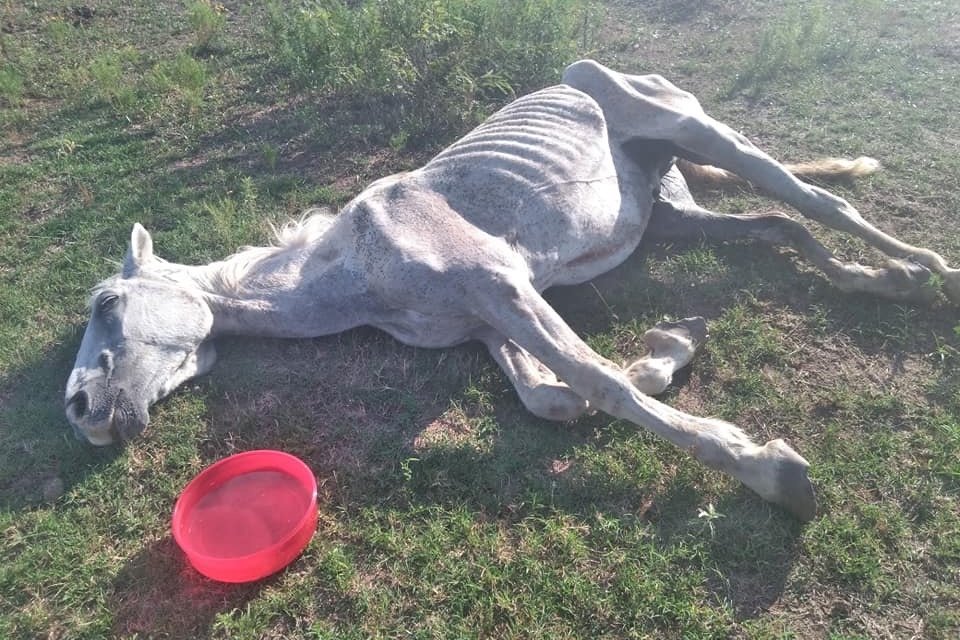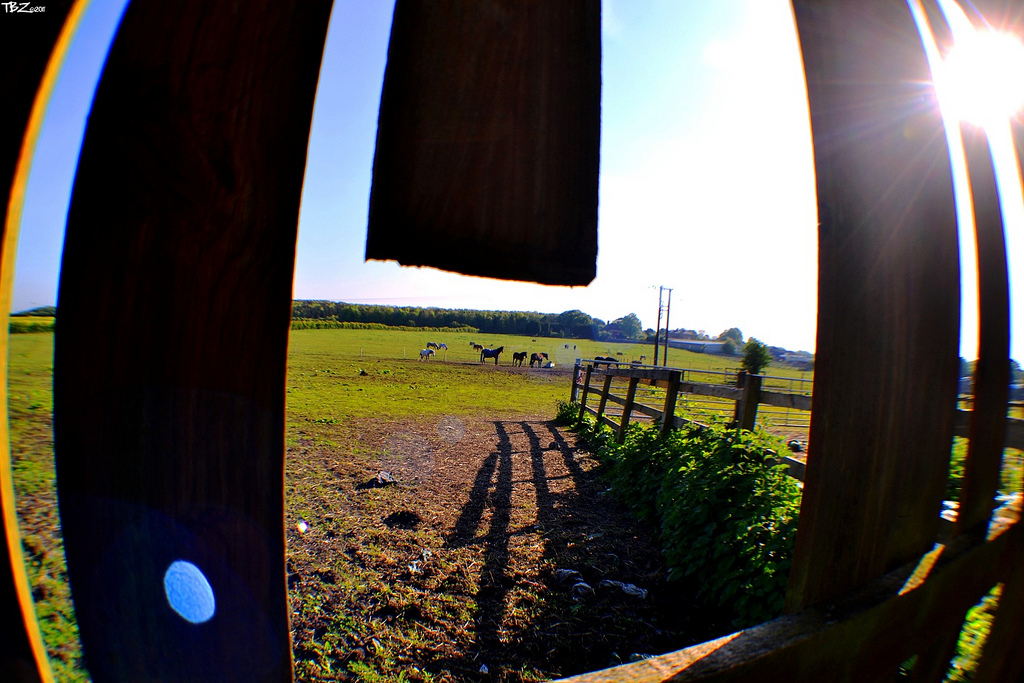Editor’s note: a graphic image of the horse is at the bottom of this post.
Disturbing images of a dying horse made the rounds on Facebook last week. The animal looked like mere skin and bones, and was laying on the scorched Texas ground as it died – no water in sight. Passersby called the Bastrop County Sheriff’s Office to report the situation as a case of animal cruelty. But on Friday, the sheriff closed the case, saying he didn’t find the animal to have been treated in a cruel manner. The horse’s owners told him that the horse was old and that they believed it should have a natural death.
Austin-based Forensic Veterinarian Melinda Merck says the definition of animal cruelty is when something negatively impacts and animal’s welfare. But she says applying that definition can depend on several factors, including the species. A horse is considered livestock, so the laws are different than they are for non-livestock animals, like dogs or cats.
“You can get a third-degree felony on non-livestock, versus livestock,” Merck says.
Merck says all law enforcement officers have the authority to investigate animal cruelty, but they often don’t have the proper training to accurately gauge an animal’s health and how it was treated.
“Determining their level of nutrition or how skinny they are – often that is requiring more education,” Merck says.
More of that training is starting to become available in Texas. She says Travis County recently offered free education for officers, and there was another recent training in northwest Texas. She says Texas is taking animal cruelty more seriously because it’s linked with other types of crimes.
“It can be in conjunction with that current act of animal cruelty, or as a warning sign of things to come,” Merck says
She says the shooter in the Sutherland Springs church massacre had a history of domestic violence and animal cruelty.
The Texas Legislature recently strengthened some animal cruelty laws. Those convicted can be sentenced to two to 10 years in prison, and repeat offenders can be sentenced to up to 20 years. Before, the maximum sentence was two years.

Texas animal cruelty laws do not include penalties for the treatment of livestock. This emaciated horse died in Bastrop County.
Written by Caroline Covington.
















